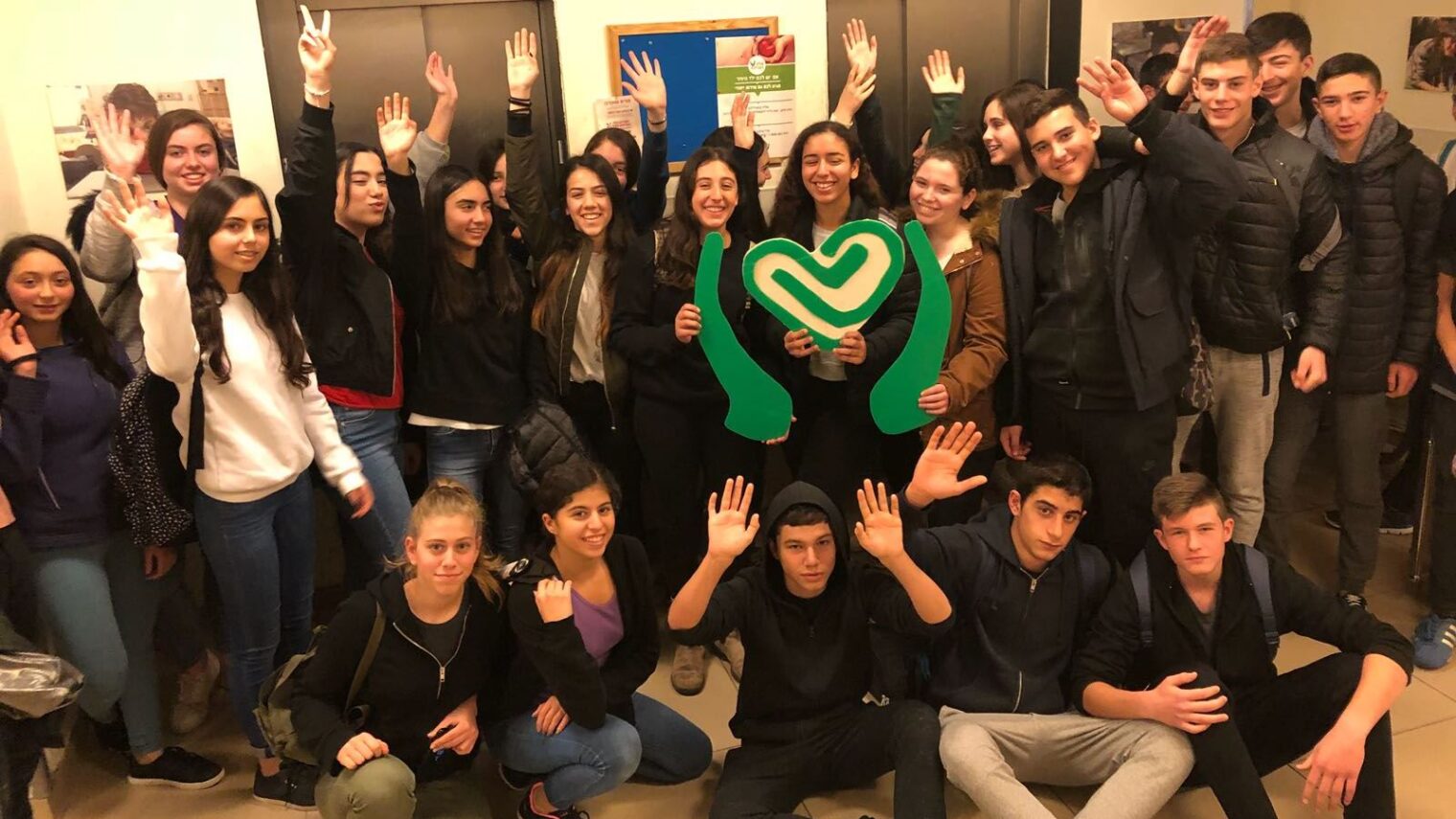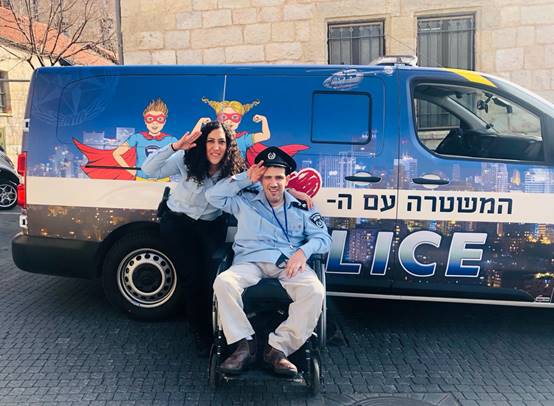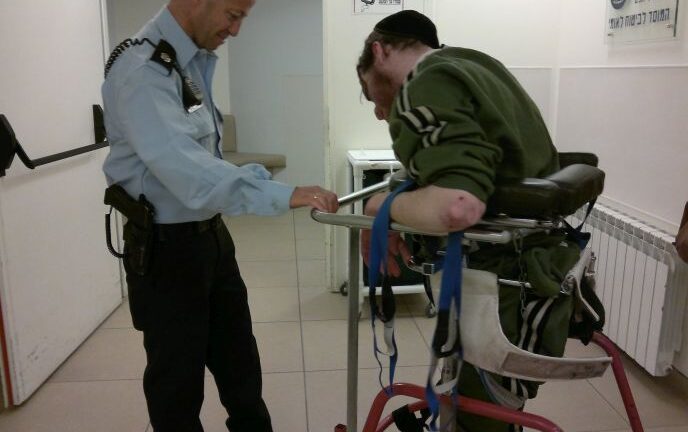Nearly 400 ninth-graders from the Interdisciplinary High School in Hadera accompanied students from the nearby Neve Etgar School for Children with Special Needs on a Tu B’Shvat tree-planting activity earlier this year. The Hadera students decided to organize a music and crafts activity for the special-needs kids a week later.
The two groups might never have crossed paths if not for a program called Tikkun Olam (Repairing the World), launched in September 2016 by ALEH, Israel’s care network for children with severe complex disabilities, in partnership with Israel’s Ministry of Education.
Tikkun Olam exposes Israeli high school freshmen to peers with disabilities and teaches them about acceptance and inclusion through lectures, experiential workshops and volunteering opportunities.
More than 10,000 secular, ultra-Orthodox, national-religious, Arab and Druze students from 60 schools across Israel participated in the first year, leading to a noticeable spike in youth-led volunteerism and social initiatives. This year, the goal is to reach 100,000 students.
“The encouraging responses we receive, the independent initiatives led by Tikkun Olam participants — teachers, parents, school principals and students — teach us that this is the beginning of a social revolution with the youth at the forefront,” says Avi Wortzman, director-general of ALEH’s rehabilitation village in the Negev. (ALEH is an acronym for the Hebrew words “helping the special child.”)
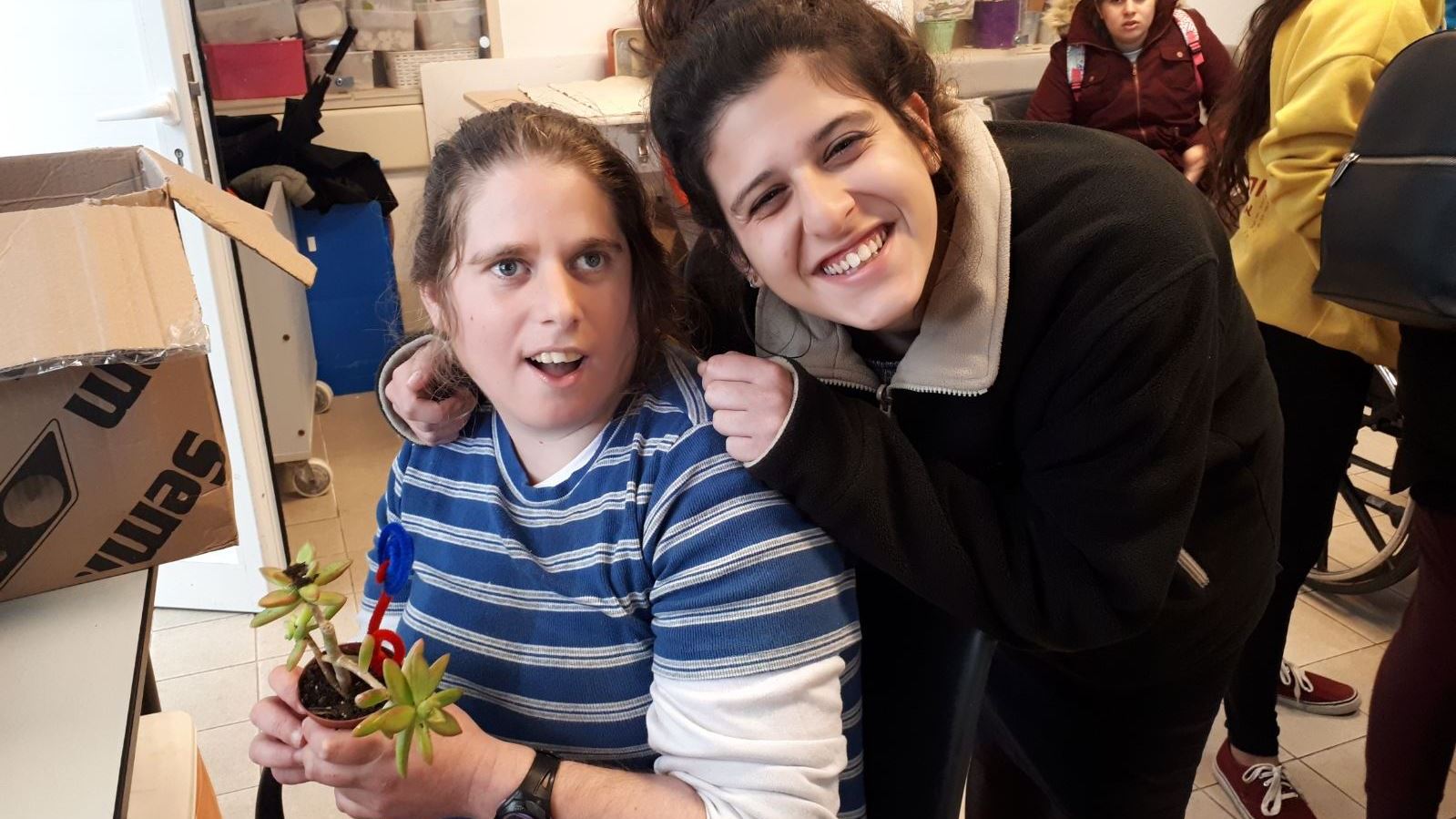
Wortzman conceived of the unique venture in response to growing demand for tours of ALEH’s centers in the Negev, Bnei Brak, Jerusalem and Gedera. Many school principals were interested in giving their pupils a firsthand look at how ALEH cares for people with complex disabilities.
Wortzman piloted Tikkun Olam with teens from Merchavim School near ALEH Negev. Based on that success, ALEH agreed to develop and expand the project, which has intrigued even foreign visitors.
“Recently, a group of tourists from Taiwan visited ALEH Negev to learn about our unique activities. During the tour, they met with students who participated in Tikkun Olam, and they were amazed at this project,” Wortzman tells ISRAEL21c.
“I am certain that Tikkun Olam and the student initiatives inspired by it will serve as an educational and values model for countries and schools abroad,” he continued. “The program provides the students with the information, tools and training they need so that they can become ambassadors for people with disabilities throughout the world.”
10-step process
Tikkun Olam is structured in 10 stages.
The first stage is a day-long training for a designated coordinator from the participating school. Then, ALEH staff visits the school to assess its physical accessibility and meet with the educational staff.
The third stage introduces teachers to the concepts of accessibility and inclusion, incorporating an experiential element such as a “sensory meal” in which the teachers cope with a different simulated disability at each course.
In the fourth stage, teachers receive preparatory materials including journals in which their students can record feelings and impressions during the Tikkun Olam program.
People with disabilities from the Makom L’Kulam (A Place for Everyone) and Negishut Yisrael (Access Israel) organizations then facilitate interactive workshops to sensitize the students to daily challenges faced by their peers with disabilities. The able-bodied students may try navigating an obstacle course in wheelchairs, walking the school grounds with blindfolds and canes, or conversing in sign language while wearing noise-cancelling headphones.
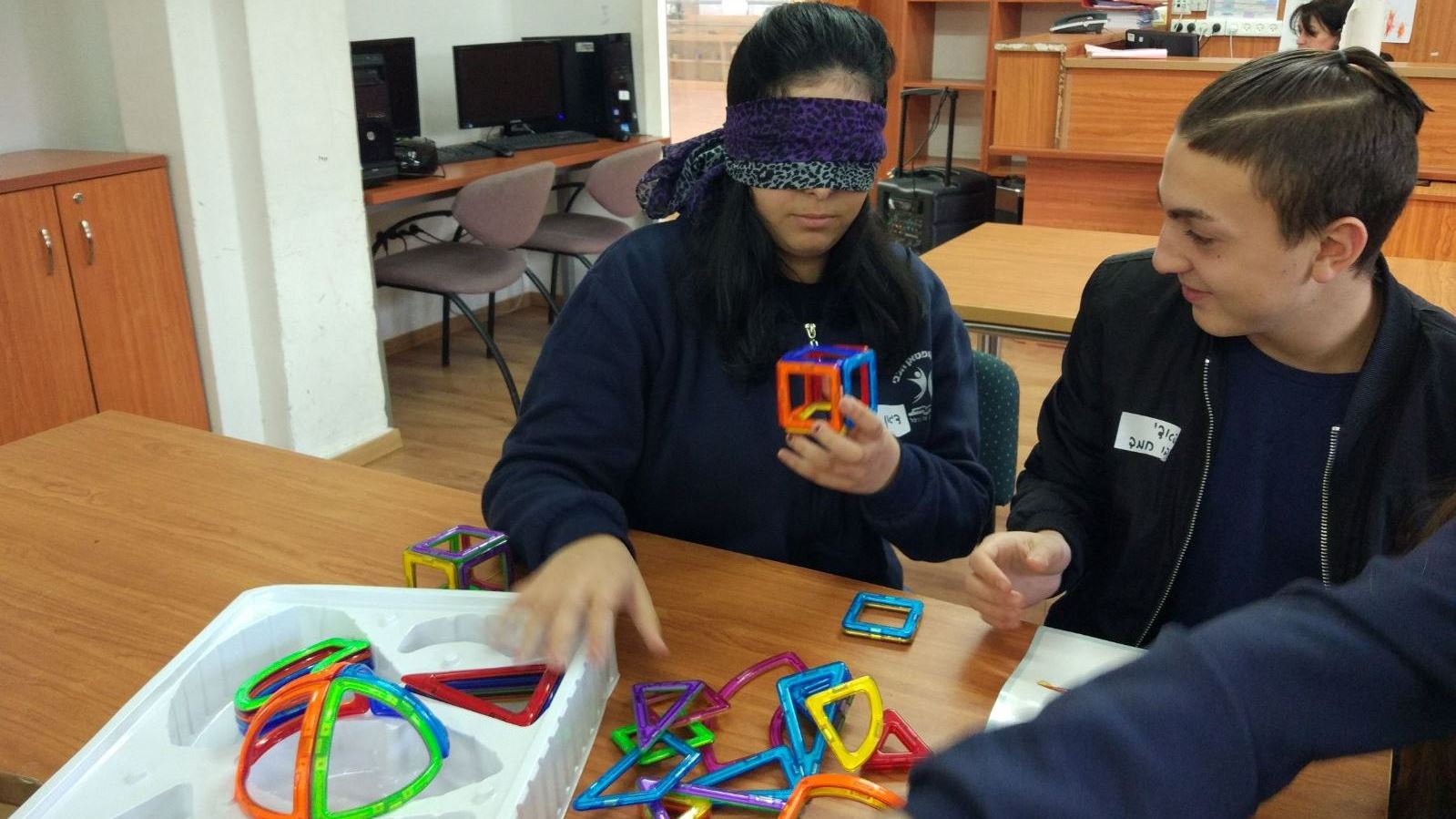
In Stage 6 of Tikkun Olam, the ninth-graders are visited by key figures in Israeli society who have disabilities or are involved with people with disabilities. Then they watch and discuss a play concerning disabilities and inclusion.
Tours of ALEH facilities begin during Stage 8. After that, each student group develops and leads a community-based social project that counts toward their matriculation requirement. Individuals also may choose to volunteer at events for people with disabilities.
Finally, Tikkun Olam participants participate in a week of marches throughout Israel, walking alongside people with disabilities from their area.
Encouraging results
“I can see the changes in the students as they begin to understand why giving is so much better than receiving,” says Avi Ben-Torah, a post-high school National Service volunteer who assists with the Tikkun Olam program at ALEH Negev.
“By teaching them these lessons while they are young and providing them with these important growth experiences before they become self-absorbed, we will change Israeli society for the better.”
Tamar Megidon Sharett, social-education coordinator at Naamat Hasharon Technological High School in Hod Hasharon, says Tikkun Olam “has made our students more sensitive and empathetic, and they are excited to give of their time to help others. We are already seeing a change in the way that our students talk about and interact with individuals with disabilities.”
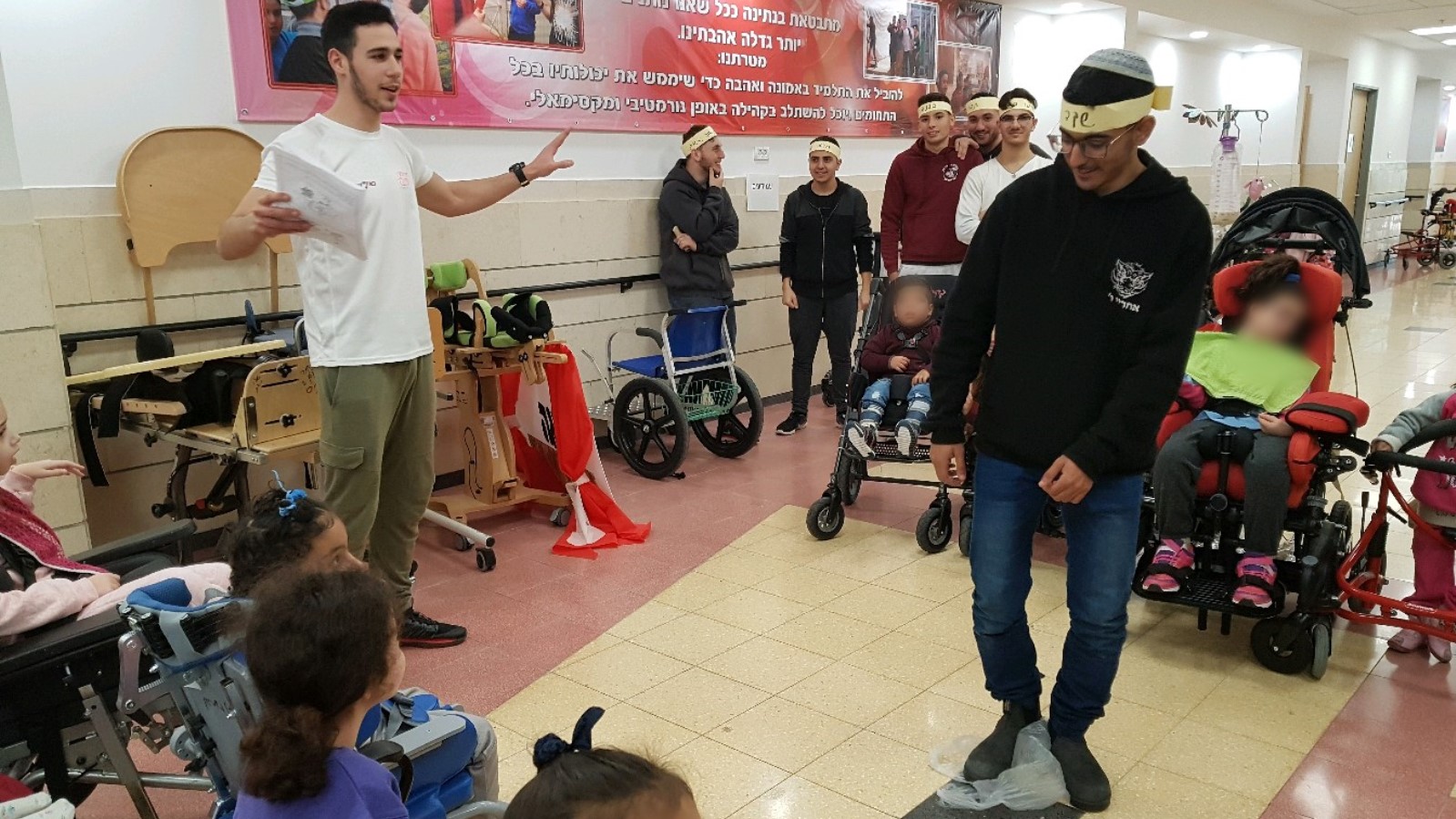
This year’s activities are proving to be just as impactful.
In November, after volunteering at the Harim School for Special Needs in Givat Ada, 50 students from the Hebrew Reali School in Haifa ran the 2.5-kilometer race in the Haifa Half-Marathon together with 20 students from Harim, led by Reali’s physical education teacher. One student even ran while singing in order to encourage a young man who can communicate only through song.
This Purim, a fully accessible carnival was staged for 80 Harim students by Yeshivat Bnei Akiva Lapid in Modi’in.
Planned expansion
ALEH’s plans to expand Tikkun Olam will bring the annual cost of the program to $1.85 million, to which the Israeli Ministry of Education will contribute $1 million annually for three years. The remaining $850,000 per year must be fundraised.
Wortzman envisions not only reaching many additional schools but also adding a social sensitivity program in which students would competitively accrue points for online and offline initiatives involving disabled and able-bodied students and well-known personalities with disabilities.
“Now that every participating school in Israel has become an ALEH satellite and a megaphone for the cause, our ability to impact the public and spread the messages of acceptance and inclusion has increased tenfold,” says Wortzman. “We are making a real difference for individuals with disabilities well beyond the walls of our own residential facilities.”
For more information, click here.




